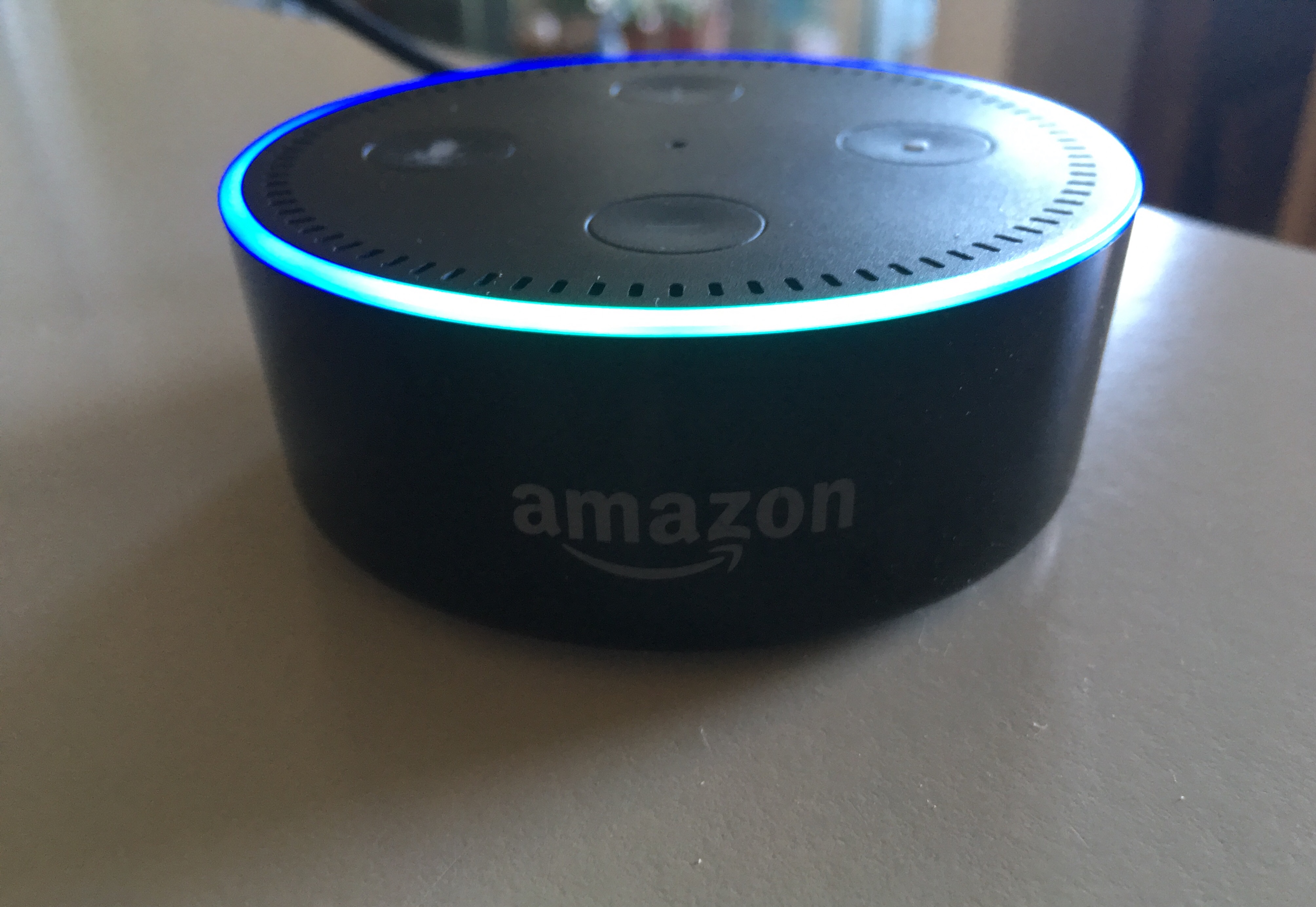Leveraging Alexa: Learning to Tap the Passion for Smart Speakers

At last month's RAIN Summit the focus was on podcasting, with panels of pundits like Nick Quah and personalities like Elvis Duran on hand. But the star of the show was the big reveal of recent Smart Speaker Research from Edison Research and NPR. While it fit within the realm of the "Business of Podcasting" theme since smart speaker owners end up listening to about 20% more podcasts, the through line is the NPR connection. NPR has carved out not only a consistent presence on the Top 10 list of most-downloaded podcasts, but is a top contributor to moving the needle on measurement of podcasts and their distribution to emerging platforms such as Google Home and Amazon Alexa-enabled devices.
Edison's Vice President of Strategy, Tom Webster, shared a powerful presentation of stats, survey results and video intercepts that illustrated the diversity of users of these voice-controlled devices -- Millennials to multi-cultural. He wowed the event attendees and, judging by social media posts, a subsequent webinar garnered equal appreciation for the presentation by illustrating exactly how smart these speakers have gotten, and just how quickly we've become accustomed to their offerings. (Sign up for the next webinar covering the research here.)
According to Edison and Triton's 2017 Infinite Dial, released in March, just 7% of U.S. A12+ own one, but two-thirds of that demo are aware of smart speakers like Amazon Echo products and Google Home. Bryan Moffett, Chief Operating Officer of NPR's sponsorship subsidiary National Public Media, explained that they partnered with Edison on this research now because of a "strong suspicion that smart speakers were changing how consumers connect with audio." Those instincts were proven out by the data captured; however, the extent "surprised even us," he said.
"While most people initially bought a smart speaker as a novelty or to listen to music, they quickly find the device enables them to do much more," Moffett explained. "People with smart speakers listen to more audio across the board -- music, news, audiobooks. They use the speakers to control their homes, to manage their lives and to help with their children."
In fact, 42% of owners say the smart speakers are "essential to their everyday lives." Essential. And, 65% "wouldn't want to go back to a life without one." They use them for everything from timers to translations, shopping to just plain companionship with their two-way sensibility. The significant level of passion for these new pet speakers paves the way for brands to have a different relationship with consumers. Webster noted that "Advertising models are going to have to adapt, and adapt quickly, to the American consumer's increasing willingness to curate their own media mix and avoidance of traditional advertising messages" and this, so far, more tolerable form of interruptive advertising may be one path to success.
"NPR has a long history of helping brands find a calm, informative and respectful voice with consumers," said NPR Chief Marketing Officer Meg Goldthwaite. "That experience translates beautifully to smart speakers, where we consumers are a breath away from silencing content we don't like. It will be more critical than ever for brands to find the appropriate tone as they enter this new space."
It's that perspective which has driven NPR to not just be ubiquitous across all possible platforms with their content and subsequent sponsorship offerings, but to be bona fide experts in all things audio. Why did NPR invest in this research? Tom Hjelm, NPR Chief Digital Officer, said: "The smart speaker space is on fire, and yet it's still nascent. Because we're so bullish on its future, and confident in the place that public radio will have there, we're hungry to understand its growing audience: who they are, why they are using it and how."
Hjelm, emblematic of those passionate smart speaker fans himself, went on to explain: "Few recent innovations in technology are better suited to what NPR and public radio have been doing for generations. Our ability to produce and craft audio that informs, engages, inspires and entertains, whether through short-form news updates or long-form narrative, makes us an ideal content partner to these new platforms. The conversational mode of voice activation maps directly to the intimate, call-and-response nature of the programming that we and our member stations deliver every day. Remember the voices of NPR are not just conveyers of content; they are audio companions who connect with our listeners through the course of their daily lives -- at home, in the car, everywhere. In addition to our content, we've spent years actively exploring new forms of audio discovery and delivery through new products and platforms. We see the smart speaker as the next, inevitable step in this journey of innovation. We are thrilled and fascinated by the possibilities of this exploding space, and every piece of research shows that our audiences are, too."
Hjelm described how NPR might apply their findings. "As with any new platform, exploring the opportunities of voice activation requires us to think in new ways across a range of disciplines," he said. "The data from this research are informing how we program and produce content, how we market ourselves and our partners, and certainly how the smart speaker connects to our broader ecosystem of touchpoints with the audience: with our apps and websites, with other connected devices and with the radio itself. It's a transformative opportunity, and that requires us to adapt, too."
One of the fascinating, though possibly unintended, consequences of instant voice-based purchasing on Amazon, for example, is the impact on consumers' brand affinity. The opportunity to scan for appealing labels or swaying brand statements is giving way to empowering Alexa to pick and choose for the shopper. That, in turn, should inspire more marketers to "speak up" with brand-specific reminders in smart speaker content.
How will it all turn out? Might have to ask Alexa.
Click the social buttons above or below to share this story with your friends and colleagues.
The opinions and points of view expressed in this content are exclusively the views of the author and/or subject(s) and do not necessarily represent the views of MediaVillage.com/MyersBizNet, Inc. management or associated writers.


